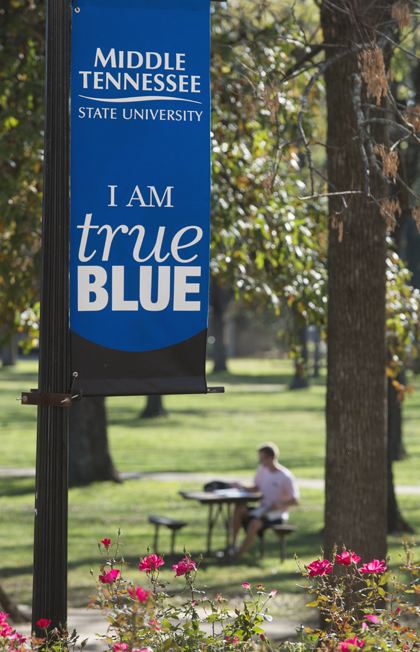
Communication
Study communication to understand messages in its context and develop critical thinking, hands-on skills, and global understanding.
Communication, B.A.
The study of communication focuses on how people use messages to generate meanings within and across various contexts. The Communication discipline studies all forms, modes, media, and consequences of human communication, creating flexibility in career choices and opportunities for personal development. Our students:
- develop critical thinking abilities to evaluate communication problems and find solutions
- engage in experiential learning in the community and build toward career goals with hands-on projects
- apply knowledge to conduct research with faculty in areas of interest
- create messages designed for specific audiences, contexts, and goals
- understand and navigate differences in our global society
News Briefs

Applying Knowledge
Dianne Guerrier studied in France! The Communication major worked part-time for the National Guard while taking classes at MTSU. As a senior, she participated in a study-abroad program and took classes in Caen, France. "Communication Studies has given me the ability to communicate confidently and effectively by providing me with the knowledge of diverse cultures. Classes, such as "Argumentation" and "Tradition and Change in Middle East Communication," have allowed me to face my fears, challenge myself, and overcome my uncertainties. I am ready to travel the world and meet people from different cultural backgrounds!" Diane realized she could have a great time expanding her horizons and learning important career skills.
News Briefs
Applying Knowledge

Dianne Guerrier studied in France! The Communication major worked part-time for the National Guard while taking classes at MTSU. As a senior, she participated in a study-abroad program and took classes in Caen, France. "Communication Studies has given me the ability to communicate confidently and effectively by providing me with the knowledge of diverse cultures. Classes, such as "Argumentation" and "Tradition and Change in Middle East Communication," have allowed me to face my fears, challenge myself, and overcome my uncertainties. I am ready to travel the world and meet people from different cultural backgrounds!" Diane realized she could have a great time expanding her horizons and learning important career skills.
Related Media

Careers should be changed to: Communication is the backbone of any workplace. The Communication major, grounded in the liberal arts tradition at MTSU, builds valuable assets that can lead to many rewarding career opportunities in today’s dynamic workforce. The ability to communicate effectively is one of the most highly sought skills by employers. The National Association of Colleges and Employers (NACE) Job Outlook 2020 Survey found that the knowledge and skills taught in Communication courses are essential to being hired. Students who get a degree in Communication have a variety of career options. The skills we learn in these courses translate into career success at various levels. The careers of some of our majors/alumni include:
- Political Consultant
- Political Campaign Director
- Ministry/Missions Nonprofit Organization Director
- Lawyer
- Teacher
- Negotiator/Mediator
- Event planner
- Higher Education Student Advising
- Patient Advocate
- Salesperson
- Community Relations Manager
- Health Services Manager
- Hotel Manager
- Communication and Social Media Specialist
- Customer Service
- Property Manager
- Motivational Speaker
- Corporate Trainer
- Communication Consultant
- Fundraiser
- Public Health Communicator
- Counselor
- Child Welfare Worker
- Drug Company Representative
- Diversity Consultant
- Hospitality Manager
- Higher Education Student Success
- Corporate and Collegiate Recruiter
- Realtor
Salary Information for Graduates with a Degree in Communication
According to Zip Recruiter (2023): Recent graduates with a degree in communication earn an annual median of $45,250 per year Graduates with a degree in communication and some workforce experience earned a median annual salary of $72,300.



Student Clubs

CONTACT US

Please fill in the form below and we will contact you very soon
















